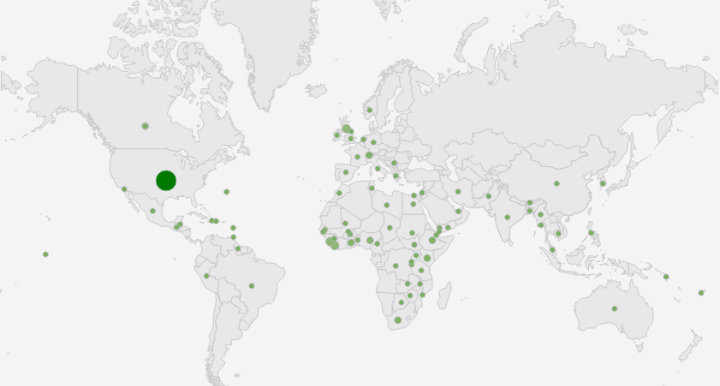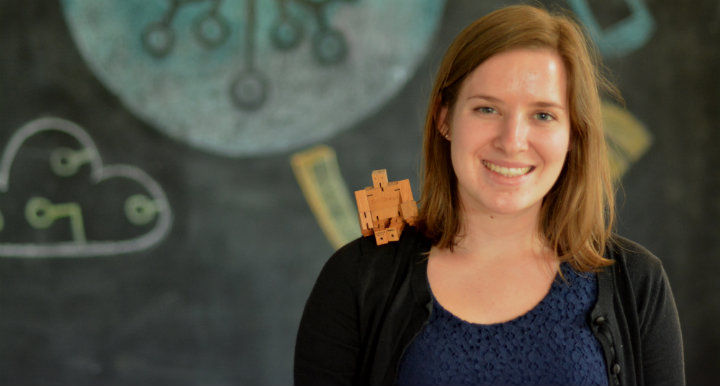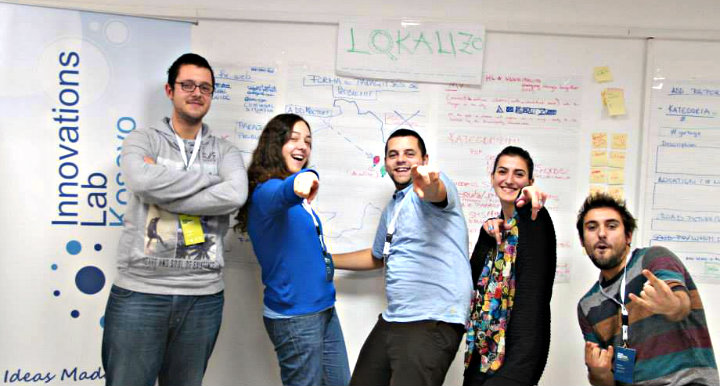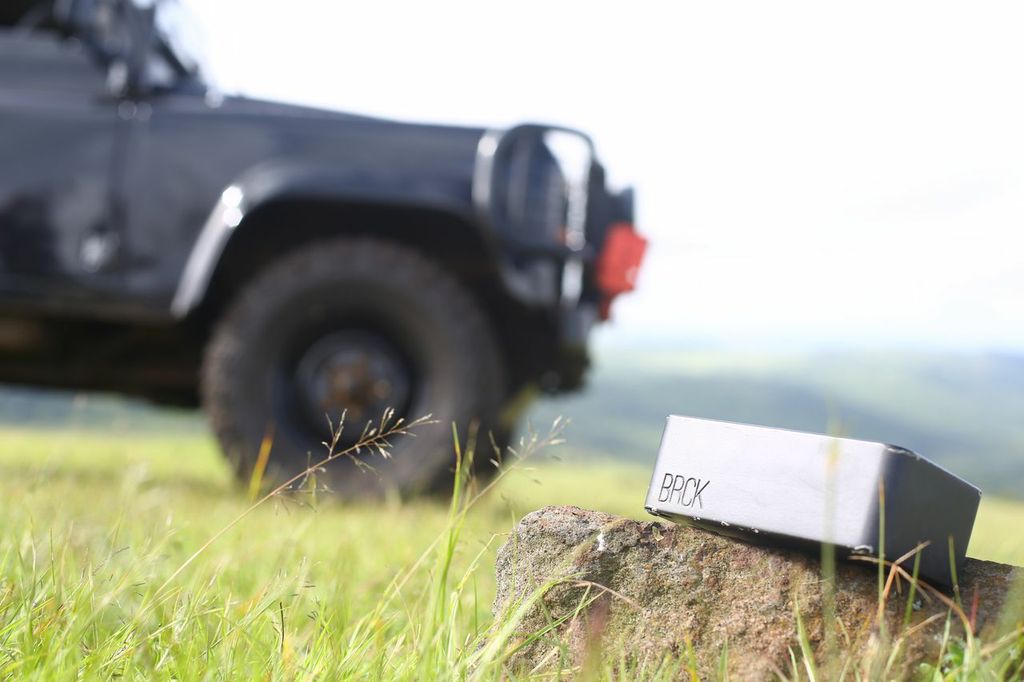TechChange recently broadcasted the Training Health Workers for Ebola webinar series, with the sponsorship and webinar content of mPowering Frontline Health Workers and IntraHealth International. Over 550 participants from more than 70 countries have joined this webinar series so far, and more health workers around the world continue to sign up to view these recorded sessions for free.
The 4-part webinar series brought together voices from all over the world, both in terms of expert contributors and online viewers. We are inspired not only by the amount of people who participated online, but also by their contributions to the discussion on the information and tools necessary to support frontline health workers. Many commenters interacted with guest experts by asking important, timely questions, as well as by sharing information and resources on the work that they or their organizations are doing on the ground in Liberia, Guinea, and Sierra Leone to respond to the outbreak.
In case you missed the series, here’s a brief recap of each webinar:
In the first webinar, “Learning and Information Needs for Frontline Health Workers”, Dykki Settle (IntraHealth) and Sean Blaschke (UNICEF) discussed their work with the free SMS mobile communication system, mHero. Informed by the challenges faced by communities in Liberia, mHero was developed with the aim of investing in and strengthening tools that have already been implemented in Liberia to support the development and accessibility of health workforce information.
In the second webinar, “Health System Support for Frontline Health Workers”, Dr. Chandrakant Ruparelia (Jhpiego) shared key considerations for designing training programs for healthcare workers in areas affected by the Ebola outbreak. Additionally, Marion McNabb (Pathfinder International) pointed to the importance of leveraging existing training programs and mechanisms effectively in the Ebola response. Panelists from Digital Campus and Medical Aid Films also shared their experiences with using video for behavior change communications and health messaging.
In the third webinar, “Community Mobilization and Interactions with Clients”, Gillian McKay (GOAL) presented information about the social mobilization campaign that GOAL is implementing in Sierra Leone through two key innovations: uniformed services training emphasizing protection for officers involved in the Ebola response, and an Ebola survivor and champions media campaign to build trust and support within communities affected by Ebola. Additionally, Reverend Moses Khanu shared information on frontline efforts and the resources and support necessary in Sierra Leone.
In the fourth webinar, “Data to Support Effective Response and Case Management”, Jonathan Jackson (Dimagi) provided information on his organization’s effort to build a mobile tool for frontline health workers that can aid in contact tracing while collecting information for real-time data visualization and analysis. Additionally, Garrett Mehl (WHO) and Matt Berg (Ona) discussed their collaboration on the WHO data coordination platform to promote a harmonized Ebola response.
If your interest is piqued by any of these four webinars, you can watch each all recorded sessions in their entirety for free when you register using this link.
With each webinar, you will also find the discussion among online participants in the comments section. You will see that many participants shared details about their work and experiences, as well as initiatives that are emerging or already in place in the Ebola response. Where possible, we have also included the presentation slides and resources shared by presenters during each webinar.
As mentioned during each webinar, you can find additional resources and interact with experts on the Ebola Resources for Health Workers site.
If you’re interested in learning more on the role of technology in the Ebola response, join our online courses in mHealth and Tech Tools & Skills for Emergency Management.




